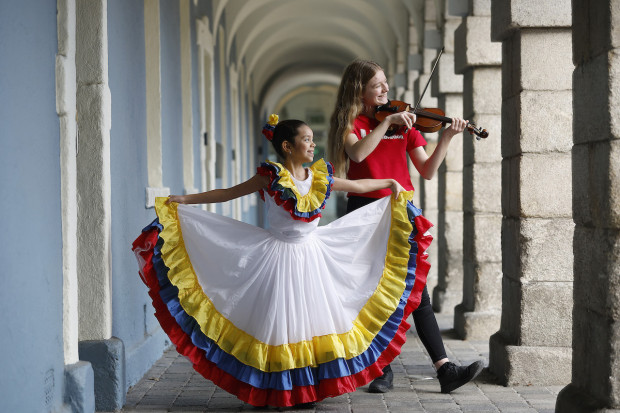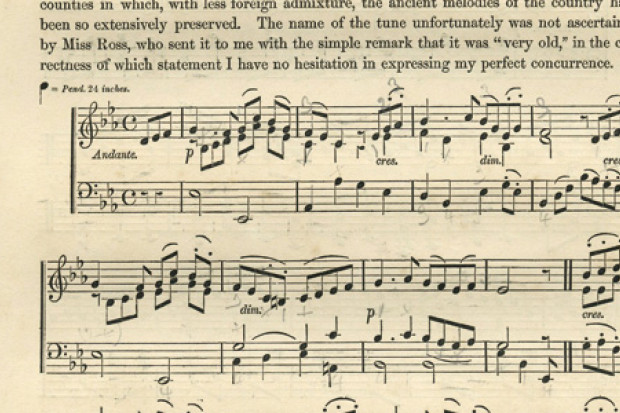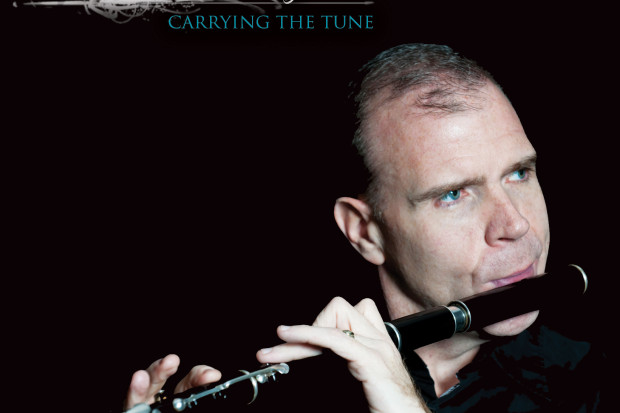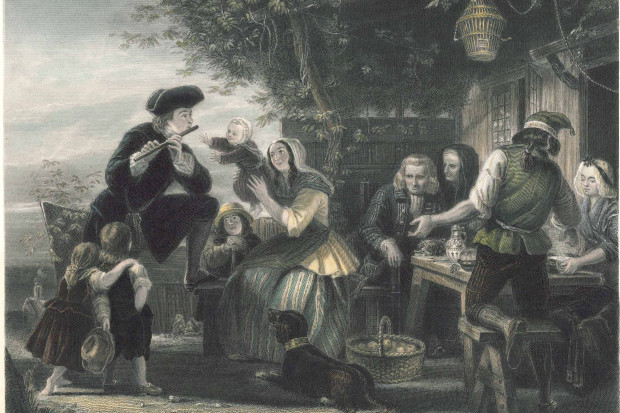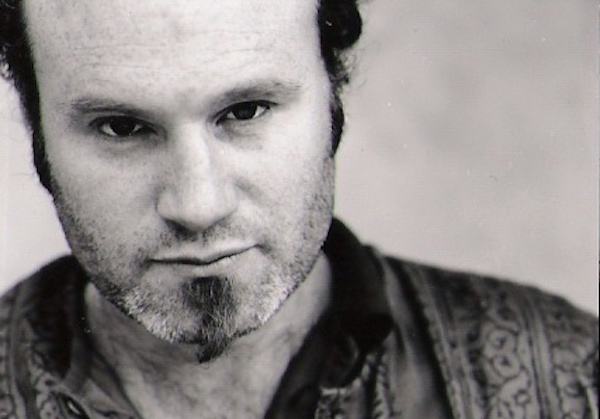
Rossa Ó Snodaigh
Have Traditional Musicians No Ambition Beyond the Session?
The traditional music session, as we now know it today, is quite a recent development. Stimulated initially by the folk revivalists, it took off in earnest when tourists were stirred to seek settings offering tunes and ballads on their visits to Ireland. Publicans, some with laudable cultural ideals, were quick to invite musicians in to cater for the growing demand and many across the country suddenly found themselves in regular employment, plying their trade to a live audience and getting a few free drinks to boot.
However, it has got to the stage where, when summer approaches, every pub in the country reels in the musicians they refused entry to just a few days previous, then come September, they turf them out to make space for the karaoke machines.
Traditional musicians have put themselves at the mercy of market forces which have no more ambition for the music than the amount of pints a session will sell in comparison to a DJ’s set. One Dublin publican, who kept employing traditional musicians long after the tourist season was over, gave a very alarming answer when asked by the musicians why he continued to ask them back every week (when it was no secret that he disliked the music and no one came into to listen or drink). ‘You’re cheaper than bouncers and you keep the skangers out!’ was this cultural idealist’s retort.
If being employed as some kind of aural-bouncer and playing to an empty room week in week out doesn’t break your spirit, playing in a loud overcrowded bar every other night will. I once played a traditional music session in an Irish pub in Prague, where the din was so bad that I could barely hear the player next to me. When we asked if we could move somewhere quieter the barman suggested we sit next to the front door. It was a tight space and just as difficult to hear, so for a laugh we all began miming – nobody was any the wiser! Then we heard some Muzak coming through the speakers. That was the last straw – we left shortly afterwards to enjoy the night for ourselves. Neither the customers nor the bar staff knew any different and we still got paid.
The way it should be listened to…
In most other cases, the musicians will continue to play no matter how unsuitable the conditions. This causes them to play out of duty rather than for enjoyment. It divorces them from the music and divorces the public from the music too. It is getting to the stage where neither publican, punter nor piper seems to cares for the music anymore and this is gradually reducing our music to mere tonal wallpaper. In a recent session in the Palace Bar in Dublin, a woman, when asked why she continued to chatter over the singer, shouted back: ‘I am listening to Irish music the way it should be listened to – in the background!’
Should traditional musicians continue to tolerate loud bars and drunken tourists talking over their music? Is it our only desire, as musicians, to play to philistines in pubs until we’re ninety? Have we no ambition beyond the session?
You can be a beginner aged seventeen or a master aged seventy and you will still get the same response: a half-applause because the few punters who weren’t talking noticed that there was a pause in the music. Bashing out jigs and reels to the clatter of pint glasses and noisy tourists can often be only one step removed from the mindless mechanical monotony of the céilí bands and is no longer the place where our music can thrive. This over-reliance on the one setting for expression is like over-reliance on the one field for a single crop; the soil quickly becomes exhausted of nutrients, causing yields to rot.
Emotional time-bombs
Having no performance space available other than the pub, many session leaders have tried to turn would-be open sessions into etiquette-driven, rigid experiences, full of unwritten rules and regulations, which are enforced with disparaging looks and murmured slights.
As a youngster I joined in on a session with the older men after a class in Comhaltas. Not knowing all the tunes, I began to play the bones. Immediately, I noticed the smiles retracting and the eyes squinting. That was my first introduction to the ‘fit in or feck off’ attitude that permeates so many sessions around the country. That this was not my last such experience is a sad reflection on the lack of openness in Irish traditional music. I have been vibed out of so many sessions that playing at them can often be an experience of endurance rather than of enjoyment.
Another such incident occurred more recently in a bar in Galway. We in Kíla were invited to play at a session by a singer who had opened our gig for us. Although he wasn’t going to be there himself that night he told us that we’d be made welcome. When we got in we noticed that there was a militant ‘no stringed or skinned accompaniment please, we’re purists’ atmosphere in the place. This was one of those closed sessions running under the ‘open session’ banner. Undaunted, I joined in on the bodhrán and got the usual cold shoulder and the ‘session-wrecker’ glares. Once they noticed I was able to play and that my sonically compliant pitter-pattering was actually adding to their own enjoyment of the tunes, the tension began to ease. That is until our guitarist joined in. The tape recorders were immediately drawn away from him and almost right away the main fiddler started barking at him to tune up. The guitarist checked his strings and continued playing. Unhappy with this he put his fiddle down and launched a physical attack on him, which I managed to intercept. A full on fisty-cuffs was very narrowly averted.
On reflection, it wasn’t his guitar that was out of tune, it was his motivation for playing which was out of tune with theirs. We were kicking back, whereas they were all geared up; we had played our gig, this was their only platform. If musicians could find other venues where their playing could be appreciated, then sessions might cease to be the emotional time-bombs that many have become and might once again be warm, informal gatherings of musicians of differing degrees of proficiency, helping each other along in the name of keeping the music alive and having a bit of craic.
Music to drink to
Before you think I am coming down hard on the session, I am not. And I don’t propose we discontinue playing them either. I just don’t think they should be the be all and end all of this tradition. Sessions are a great starting ground and meeting ground for musicians, but with everyone playing at once it confines itself to the one particular sound, meaning many will not get a chance to express their own musical imagination. The session environment often does not inspire musicians to achieve higher standards of playing. As publicans know, any old rubbish will do for a pile of drunks so long as it gets the feet tapping and the bar-taps pumping.
The three celebrated emotions of Irish music, goltraí, geantraí and suantraí, inform us that the music was played in at least three different settings. Goltraí (crying music) was played at funerals and farewells; geantraí (happy music) at dances, weddings and other celebrations, and suantraí (calming music) was music played for times of rest. Such was the variety of moments where Irish musicians were called upon to perform. People rarely listen or dance to this music anymore, however, they only drink to it.
If Ireland’s traditional music is to continue to thrive, musicians must broaden their range of performance settings to include the above three occasions and many, many more. It is time for musicians who have been hiding beneath the noise and seeing the session as no more than paid practice, to put all that talent to better use.
Published on 1 September 2004
Rossa Ó Snodaigh plays percussion and whistles with Kíla.














